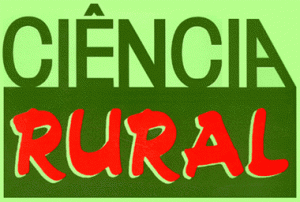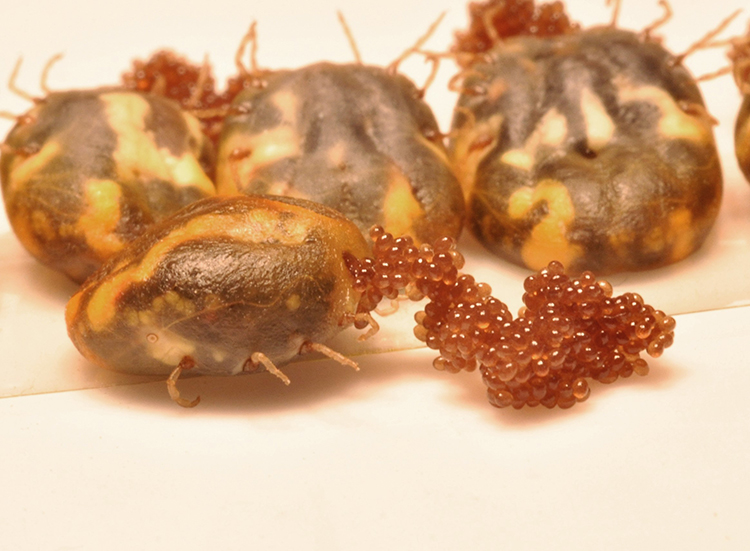Maria Luiza De Grandi, journalist at Ciência Rural, Santa Maria RS, Brazil.
Itabajara da Silva Vaz Junior, Research at Universidade Federal do Rio Grande do Sul (UFRGS). Porto Alegre, Rio Grande do Sul, Brazil.
A parasite endemic to livestock farming regions, Rhipicephalus (Boophilus) microplus is a hard tick that causes economic losses in major beef-producing countries, including Brazil, causing an estimated loss of up to US$3.2 billion per year in the country. The use of acaricides is still the main strategy for controlling R. microplus infestations, but vaccines have proven to be an adequate alternative and have several advantages, as they prevent the selection of drug-resistant tick populations and prevent the presence of acaricide residues in milk, meat and the environment.
For more than three decades, researchers at the Universidade Federal do Rio Grande do Sul (UFRGS) have been working to develop vaccines against cattle ticks. The different results obtained have shown the potential for the technological use of several tick proteins, all of which have been tested as vaccine antigens against cattle ticks and ticks of other species. Recently, in partnership with the Pakistani institution Abdul Wali Khan University, researchers from UFRGS developed the article Vaccination against Rhipicephalus microplus: an alternative to chemical control?, published in Ciência Rural (vol. 54, n.º 3).
The article consists of a bibliographic review, focusing on the restrictions imposed on the use of acaricides in Brazil and the European Union, as well as the impacts of vaccines based on Bm86 in controlling R. microplus. The text also discusses the efficacy of experimental anti-tick vaccines. According to researcher Itabajara Vaz, previous results characterized proteins from different tick species with potential to be used in a vaccine, serving as the basis for the formulation of 20 patents filed with the INPI, one with the registration service in Uruguay and one in Pakistan.
“The group has used different methodologies of biochemistry, immunology and molecular biology to identify and select components of physiological pathways that are crucial to the physiology of the parasite. For example, advances in “omics” technologies (such as genomics, transcriptomics and proteomics) have opened up a range of opportunities to facilitate and expand the capacity to identify new vaccine antigens”, explains the researcher.
According to Vaz, the research group has recently developed a project in partnership with a Brazilian veterinary products company to analyze the technical and commercial viability of a vaccine developed by the research group for tick control.
References
Parizi, L.F., et al. Universal Tick Vaccines: Candidates and Remaining Challenges. Animals [online]. 2023, vol. 13, no. 12, pp. 2031 [viewed 30 August 2024]. https://doi.org/10.3390/ani13122031. Available from: https://www.mdpi.com/2076-2615/13/12/2031
ALI, A., et al. Host Immune Responses to Salivary Components – A Critical Facet of Tick-Host Interactions. Front. Cell. Infect. Microbiol. [online]. 2022, vol. 12, pp. 809052 [viewed 30 August 2024]. https://doi.org/10.3389/fcimb.2022.809052. Available from: https://www.frontiersin.org/journals/cellular-and-infection-microbiology/articles/10.3389/fcimb.2022.809052/full
PARIZI, L.F., et al. Multi-antigenic vaccine against the cattle tick Rhipicephalus (Boophilus) microplus: a field evaluation. Vaccine [online]. 2012, vol. 30, no. 48, pp. 6912-7 [viewed 30 August 2024]. https://doi.org/10.1016/j.vaccine.2012.08.078. Available from: https://www.sciencedirect.com/science/article/pii/S0264410X12012972?via%3Dihub
To read the article, access
SILVA, L.A.D., et al. Vaccination against Rhipicephalusmicroplus: an alternative to chemical control? Ciência Rural [online]. 2024, vol., 54, no. 3, e20230161 [viewed 30 August 2024]. https://doi.org/10.1590/0103-8478cr20230161. Available from: https://www.scielo.br/j/cr/a/7SXWNT8YpNNQNp73QRSJSXC/
External link
Ciência Rural – CR: https://www.scielo.br/cr/
Ciência Rural – Site: http://coral.ufsm.br/ccr/cienciarural/
Ciência Rural – Redes sociais: Twitter | Facebook | Instagram
Como citar este post [ISO 690/2010]:




















Recent Comments